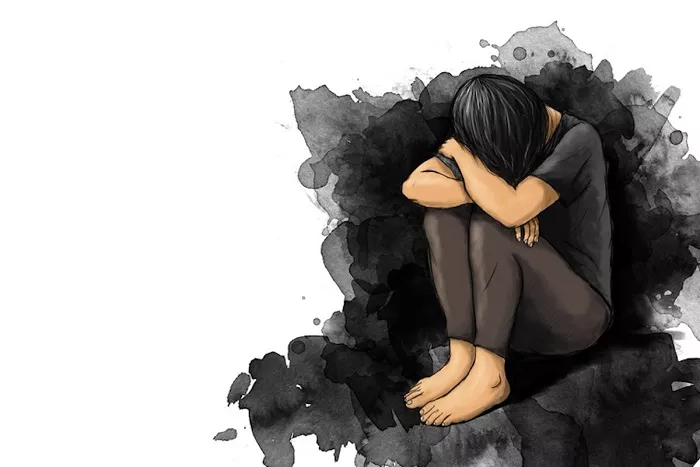Many people enjoy spending time alone. It can be a chance to relax, reflect, and recharge. However, too much solitude can sometimes lead to feelings of loneliness and sadness. For some, this can develop into depression.
But does being alone actually cause depression? The answer is not simple. While solitude itself is not harmful, the way a person experiences it matters. Some people thrive in isolation, while others suffer. This article explores the connection between being alone and depression, using psychological research and expert insights.
Understanding Solitude vs. Loneliness
What Is Solitude
Solitude means being alone without feeling lonely. It is a choice. Many people seek solitude for creativity, meditation, or personal growth. Writers, artists, and thinkers often need alone time to produce their best work.
What Is Loneliness
Loneliness is different. It is the painful feeling of being disconnected from others. A person can feel lonely even in a crowd if they lack meaningful relationships. Chronic loneliness is linked to mental health problems, including depression.
Key Differences
Solitude: Neutral or positive experience.
Loneliness: Negative emotional state.
Research shows that loneliness, not solitude, is the bigger risk factor for depression.
The Link Between Loneliness and Depression
How Loneliness Affects the Brain
Loneliness triggers stress responses in the body. The brain releases cortisol, the “stress hormone.” Over time, high cortisol levels can lead to:
- Increased anxiety
- Sleep problems
- Weakened immune system
- Higher risk of depression
A 2020 study in The Lancet found that chronic loneliness changes brain structures linked to emotional regulation. This makes people more vulnerable to mood disorders.
Social Isolation and Mental Health
Humans are social creatures. Evolution wired us to seek connections. When we lack social bonds, our mental health suffers. Studies show that:
- People with weak social ties are 26% more likely to develop depression.
- Elderly individuals who live alone have higher rates of depressive symptoms.
- Prisoners in solitary confinement often experience severe depression.
However, not everyone who spends time alone gets depressed. Personality plays a big role.
Personality Types and Solitude
Introverts vs. Extroverts
Introverts: Gain energy from alone time. Too much social interaction drains them.
Extroverts: Feel energized by socializing. Too much isolation makes them restless or sad.
Introverts handle solitude better than extroverts. But even introverts can feel lonely if they lack deep connections.
People Prone to Depression
Some personalities are more at risk:
Highly sensitive people: Feel emotions deeply. Isolation may lead to overthinking.
Those with social anxiety: Avoid socializing but still crave connection.
Perfectionists: May isolate themselves due to fear of judgment.
When Does Being Alone Become Harmful
Solitude is healthy when it is:
Intentional: You choose it.
Balanced: Mixed with social time.
Enjoyable: You feel at peace.
It becomes harmful when:
- It is forced, not by choice.
- It lasts too long.
- It leads to negative thoughts.
Signs That Solitude Is Turning into Depression
Losing interest in activities: Hobbies no longer bring joy.
Neglecting self-care: Skipping meals, poor hygiene.
Excessive sleep or insomnia: Sleep patterns change.
Feeling hopeless: Thoughts like “Nothing will get better.”
Avoiding all social contact: Even calls from close friends feel exhausting.
If these symptoms last more than two weeks, it may be depression.
How to Prevent Loneliness from Leading to Depression
Find Meaning in Alone Time
Use solitude productively:
- Learn a new skill.
- Write in a journal.
- Practice mindfulness.
Stay Connected in Small Ways
Even if you enjoy being alone, small social interactions help:
- Text a friend.
- Join an online community.
- Volunteer (helps both socializing and self-worth).
Seek Professional Help if Needed
Therapy can help if loneliness feels overwhelming. Cognitive Behavioral Therapy (CBT) is effective for depression.
Conclusion
Being alone does not always cause depression. Solitude can be peaceful and fulfilling. However, chronic loneliness is a major risk factor for depression. The key is balance—enjoying alone time while maintaining meaningful connections.
If you or someone you know struggles with loneliness and depression, reaching out for support is important. Mental health professionals can provide tools to cope and heal.
Remember: It’s okay to enjoy being alone, but no one should have to suffer in silence.
Related topics:
- How To Confront Someone About Depression?
- Is Depression Lifelong?
- How To Numb The Pain Of Depression?


